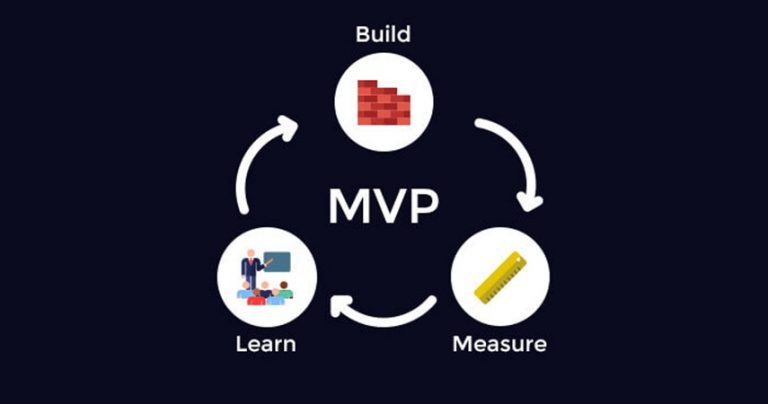
In the dynamic world of entrepreneurship, particularly in African markets, the principle of “starting small” cannot be overstated. For any entrepreneur venturing into new territories or innovative domains, embracing a phased, iterative approach is important. This article delves into why starting small is essential for creating scalable Minimum Viable Products (MVPs) and how it can be effectively applied to the diverse and evolving markets across Africa.
The Importance of Starting Small
Starting small revolves around launching a product or service in its most basic form, then gradually scaling based on real-world feedback. This approach allows entrepreneurs to manage risk, conserve resources, and refine their offerings before a full-scale launch. By focusing on a small segment of the market initially, businesses can fine-tune their MVPs, ensuring that they are better suited to meet the needs of a larger audience in the future.
Benefits of a Phased Approach
1. Risk Management: Launching a product with limited features and a small user base helps mitigate the risk of large-scale failures. If the MVP doesn’t perform as expected, the losses are contained, allowing for adjustments before committing further resources.
2. Cost Efficiency: Developing a full-featured product requires significant investment. By starting small, entrepreneurs can allocate funds more strategically, focusing on essential features that solve core problems. This lean approach minimizes unnecessary expenditures and maximizes learning opportunities.
3. Real-Time Feedback: An MVP allows for early interaction with users, providing valuable insights into their needs and preferences. This feedback is crucial for iterative development, helping entrepreneurs make informed decisions about future enhancements.
4. Focused Learning: When starting small, businesses can concentrate their efforts on a specific market segment. This focused approach enables a deeper understanding of customer behaviors and preferences, which can inform broader market strategies.
5. Agility and Flexibility: A small-scale launch provides the flexibility to pivot or refine the product based on user feedback. This adaptability is essential in rapidly changing markets, allowing businesses to respond to emerging trends and customer needs more effectively.
Practical Steps for Creating Scalable MVPs in African Markets
1. Identify a Niche: Begin by selecting a specific niche within the broader African market. Understanding local nuances, consumer behaviors, and market needs will help in designing an MVP that resonates with early adopters. For example, targeting a specific demographic or geographic area can provide a clearer focus and reduce complexity.
2. Develop a Core Value Proposition: Your MVP should address a well-defined problem or need within the chosen niche. This involves identifying key pain points and developing a solution that delivers substantial value with minimal features. The goal is to offer just enough functionality to demonstrate the product’s potential without overcomplicating the initial release.
3. Engage with Early Adopters: Once the MVP is ready, engage with a small group of early adopters who are willing to provide feedback. This group should represent your target market and be prepared to test the product in real-world conditions. Their insights will be instrumental in refining the MVP and validating its market fit.
4. Iterate Based on Feedback: Use the feedback gathered from early adopters to make iterative improvements to your MVP. This process involves analyzing user experiences, identifying pain points, and making necessary adjustments to enhance the product’s value and usability.
5. Gradual Scaling: After refining the MVP based on initial feedback, gradually expand your user base. This scaling should be done methodically, monitoring performance and user satisfaction at each stage. This approach allows for continuous learning and adaptation, ensuring that the product evolves in alignment with market needs.
Overcoming Common Challenges
Entrepreneurs in African markets may face unique challenges when implementing a small-scale MVP strategy.
2. Infrastructure Limitations: In some areas, infrastructure challenges such as limited internet connectivity or unreliable power supply can impact the deployment and usability of digital products. Designing MVPs that are resilient to these limitations can enhance user experience and adoption.
3. Regulatory Environment: Navigating the regulatory landscape can be complex, with varying regulations across countries. Ensuring compliance with local laws and regulations from the outset can prevent legal issues and facilitate smoother market entry. Watch this closely in Africa.
4. Funding Constraints: Access to funding can be limited, particularly for early-stage start-ups. Starting small helps manage financial constraints by focusing on essential features and minimizing initial investment.
5. Cultural Sensitivity: Understanding and respecting local cultural norms and values is essential for product acceptance. Incorporating cultural insights into the MVP can improve its relevance and appeal to the target audience.
From MVP to Scalable Success
As African markets continue to evolve, the ability to start small, learn from real-world feedback, and adapt accordingly will be crucial for entrepreneurs looking to make a significant impact. By prioritizing a phased approach, businesses can navigate the complexities of the market, build strong customer relationships, and position themselves for sustainable growth.
Facts:
a. Risk Management: Starting small helps manage risks by limiting initial investments and focusing on essential features.
b. Cost Efficiency: A phased approach allows for strategic allocation of resources and reduces unnecessary expenditures.
c. Real-Time Feedback: Early interaction with users provides valuable insights for iterative development.
d. Diverse Markets: Africa’s varied cultures and economic conditions require tailored MVPs to address local needs effectively.
e. Infrastructure Limitations: Designing MVPs that account for local infrastructure challenges can enhance usability and adoption.

